 W
WBancomat is an interbank network for cash withdrawals widely used in Italy. It was first introduced in 1983 for use with automated teller machines.
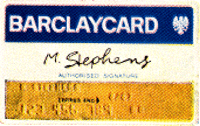 W
WBarclaycard is a brand for credit cards of Barclays PLC. As of 2010, Barclays had over ten million customers in the United Kingdom.
 W
WA card enclosure is a container for smart cards, credit cards, debit cards, telephone cards, visiting cards, business cards and other cards of similar size. Most cards have dimensions that follow the ID-1 format of the ISO/IEC 7810 standard which specify the physical dimensions for cards to be 85.60 × 53.98 mm. The enclosures can be made of metal, leather, or plastic and come in various colors and designs. Sometimes having a laser engraved design for aesthetic purposes.
 W
WCarte Bleue was a major debit card payment system operating in France. Unlike Visa Electron or Maestro debit cards, Carte Bleue allowed transactions without requiring authorization from the cardholder's bank. In many situations, the card worked like a credit card but without fees for the cardholder. The system has now been integrated into a wider scheme called CB or carte bancaire. All Carte Bleue cards were part of CB, but not all CB cards were Carte Bleue.
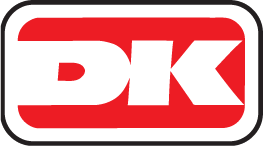 W
WThe Dankort is the national debit card of Denmark. Today it is usually combined with a Visa card and functions as a Visa debit card abroad and in stores that don't accept DanKort.
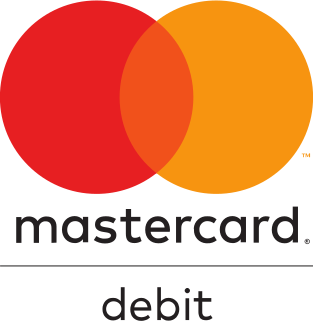 W
WThe Debit Mastercard is a brand of debit cards provided by Mastercard. They use the same systems as standard Mastercard credit cards but they do not use a line of credit to the customer, instead relying on funds that the customer has in their bank account.
 W
WElectronic funds transfer at point of sale is an electronic payment system involving electronic funds transfers based on the use of payment cards, such as debit or credit cards, at payment terminals located at points of sale. EFTPOS technology originated in the United States in 1981 and was adopted by other countries. In Australia and New Zealand, it is also the brand name of a specific system used for such payments; these systems are mainly country-specific and do not interconnect.
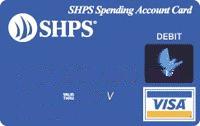 W
WA FSA Debit Card is a type of debit card issued in the United States. It can access tax-favored spending accounts such as flexible spending accounts (FSA) and health reimbursement accounts (HRA), and sometimes health savings accounts (HSA) as well.
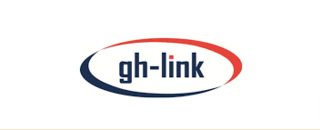 W
Wgh-link is GhIPSS’ interbank switching and processing system which interconnects financial institutions and systems of third party payment service providers. gh-link is a local electronic payment ecosystem based on the domestic ATM card with channels such as ATM, POS and Web.
 W
WA gift card also known as gift certificate in North America, or gift voucher or gift token in the UK is a prepaid stored-value money card, usually issued by a retailer or bank, to be used as an alternative to cash for purchases within a particular store or related businesses. Gift cards are also given out by employers or organizations as rewards or gifts. They may also be distributed by retailers and marketers as part of a promotion strategy, to entice the recipient to come in or return to the store, and at times such cards are called cash cards. Gift cards are generally redeemable only for purchases at the relevant retail premises and cannot be cashed out, and in some situations may be subject to an expiry date or fees. American Express, MasterCard, and Visa offer generic gift cards which need not be redeemed at particular stores, and which are widely used for cashback marketing strategies. A feature of these cards is that they are generally anonymous and are disposed of when the stored value on a card is exhausted.
 W
WGirocard is an interbank network and debit card service connecting virtually all German ATMs and banks. It is based on standards and agreements developed by the German Banking Industry Committee.
 W
WInterac is a Canadian interbank network that links financial institutions and other enterprises for the purpose of exchanging electronic financial transactions. Interac serves as the Canadian debit card system. There are over 59,000 automated teller machines that can be accessed through the Interac network in Canada, and over 450,000 merchant locations accepting Interac debit payments.
 W
WLaser was a debit card scheme in Ireland between 1996 and 2014.
 W
WMaestro is a brand of debit cards and prepaid cards owned by Mastercard that was introduced in 1991. Maestro debit cards are obtained from associate banks and are linked to the cardholder's current account while prepaid cards do not require a bank account to operate. Maestro cards can be used at point of sale (POS) and ATMs. Payments are made by swiping cards through the payment terminal, insertion into a chip and PIN device or by a contactless reader. The payment is authorized by the card issuer to ensure that the cardholder has sufficient funds in their account to make the purchase. The cardholder then confirms the payment by either signing the sales receipt or entering their 4- to 6-digit PIN, except with contactless transactions below a specified amount for which no further verification is required.
 W
WNational Common Mobility Card (NCMC), is an inter-operable transport card conceived by the Ministry of Housing and Urban Affairs of the Government of India. It was launched on 4 March 2019. The transport card enables the user to pay for travel, toll duties, retail shopping and withdraw money.
 W
WPIN was a debit card brand in the Netherlands from 1990 until 2012, owned by Currence. PIN was a magnetic stripe card, which never migrated to the EMV chip. It was therefore discontinued in 2012, after the switch-over from magnetic stripe authentication to EMV chip authentication in the Netherlands was completed. PIN was replaced by Maestro and V Pay debit cards, but as most PIN cards were already co-branded with Maestro long before 2012, consumers noticed little of the change.
 W
WSBI Cards & Payment Services Ltd., previously known as SBI Cards, is a payment solutions provider in India. SBI Card was launched in October 1998 by the State Bank of India, India's largest bank, and GE Capital. In December 2017, State Bank of India and The Carlyle Group. acquired GE Capital`s stake in the Company. SBI Card is headquartered in Gurgaon, Haryana/Delhi NCR and have branches in over 100 cities across India. For the financial year ending March 31, 2016, SBI Card recorded a net profit of ₹271 crore and a profit before tax of about ₹438 crore.
 W
WSolo was a debit card in the United Kingdom introduced as a sister to the then existing Switch. Launched on 1 July 1997, by the Switch Card Scheme, it was designed for use on deposit accounts, as well as by customers who did not qualify for a Switch card on current accounts, such as teenagers. The Solo card scheme was decommissioned permanently on 31 March 2011.
 W
WSparkBase, LLC was a stored-value and gift card transaction processor located in Cleveland, Ohio, United States from 2004 to 2016. It provided private-label, stored-value, specialty gift cards, customer loyalty, and community rewards programs to Independent Sales Organizations. ISOs then sold these gift and loyalty products to merchant customers along with credit card services and processing equipment.
 W
WSwitch was a debit card brand in the United Kingdom from 1988 until 2002. It was then merged with Maestro, which is owned by MasterCard.
 W
WV Pay is a Single Euro Payments Area (SEPA) debit card for use in Europe, issued by Visa Europe. It uses the EMV chip and PIN system and may be co-branded with various national debit card schemes such as the German Girocard or Italy's PagoBancomat.
 W
WVisa Debit is a major brand of debit card issued by Visa in many countries around the world. Numerous banks and financial institutions issue Visa Debit cards to their customers for access to their bank accounts. In many countries the Visa Debit functionality is often incorporated on the same plastic card that allows access to ATM and any domestic networks like EFTPOS or Interac.
 W
WVisa Electron is a debit card product that uses the Visa payment system. It is offered by issuing banks in every country with the exception of Canada, Australia, Argentina, Ireland and the United States. The difference between Visa Electron and Visa Debit, a similar product, is that payments with Visa Electron require that all the funds be available at the time of transfer, i.e., Visa Electron card accounts may not normally be overdrawn. Visa Debit cards, on the other hand, typically allow transfers exceeding available funds up to a certain limit. For that reason, Visa Electron cards are more commonly issued to younger customers or customers that have poor credit. Some online stores and all offline terminals do not support Visa Electron because their systems cannot check for the availability of funds. In addition to point of sale debit payments, the card also allows the holder to withdraw cash from automated teller machines (ATMs) using the Plus interbank network.
 W
WVisa Inc. is an American multinational financial services corporation headquartered in Foster City, California, United States. It facilitates electronic funds transfers throughout the world, most commonly through Visa-branded credit cards, debit cards and prepaid cards. Visa is one of the world's most valuable companies.
 W
W W
W